
The Benefits of a Municipally Owned Utility



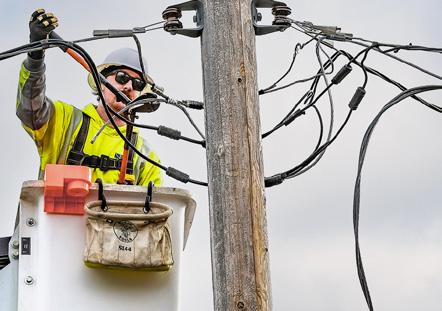
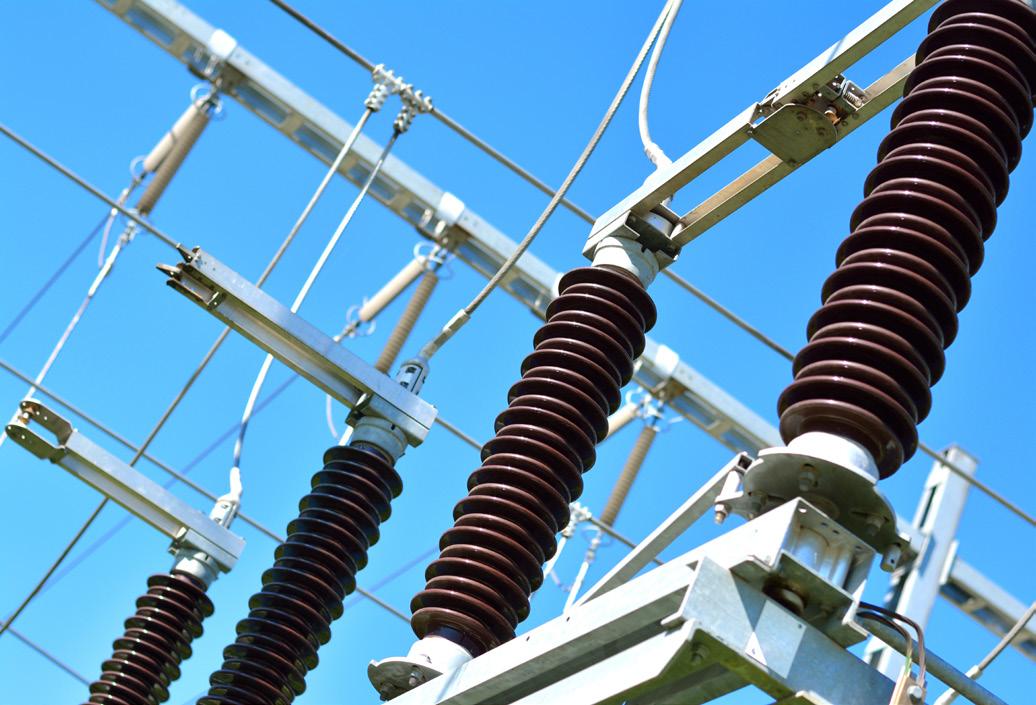

























Lakota Municipal Utilities (LMU) Municipal Power Advantage (MPA) report outlines the benefits of operating a municipally owned electric utility. The electric utility provides customer benefits and supports the community in ways beyond providing reliable electricity. Some benefits have positive financial impacts while others, less easily measured, still add value to the community.
The LMU business model exemplifies public power benefits that demonstrate the value of LMU as an outstanding asset to the community. These benefits include:
MORE AFFORDABLE: LMU customers enjoy electric rates that are up to 23% lower than the average rates of rural electric cooperatives (RECs) and investor-owned utilities (IOUs), depending on their customer class. This is made possible through wholesale power costs that are substantially lower than other regional utilities, tax-exempt financing, and the not-for-profit status of LMU, which invests back into the local system.
In 2023, the LMU electric department transferred over $270,000, or 20% of electric revenues, to Lakota’s general fund. This cash transfer helped pay for city services typically funded through local property taxes and other fees. Every year, LMU donates labor to other city departments and supports community festivals and events.
MORE RELIABLE: LMU consistently provides a high level of reliability to its customers through proactive maintenance and investment in infrastructure to ensure local system dependability. Local crews allow for quick response time to minimize any outage disruptions.
COMMUNITY AND ECONOMIC IMPACT: LMU provides energy efficiency rebates, extends utility services for potential development, and contributes to economic development efforts such as store-front improvement grants and business interest-rate buydown programs. In addition, the dollar value of utility staff salaries and purchases from local businesses are recirculated multiple times throughout Lakota, which creates a healthy local economy.
LOCAL CONTROL AND SERVICE: LMU is a community-owned utility, meaning that it is governed locally by the city council and the customers are also its owners. Additionally, LMU employs local citizens to work at the utility and operate the system. LMU’s employees are not only serving their customers, but their family, friends, and neighbors too.
Lakota is part of a mutual-aid network of public power communities in North Dakota and nationwide. If a major storm causes widespread power outages, these communities work together to restore power quickly and efficiently.
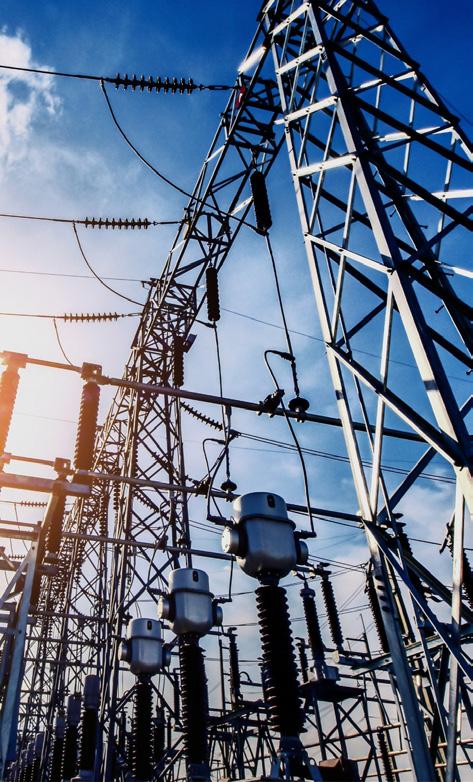
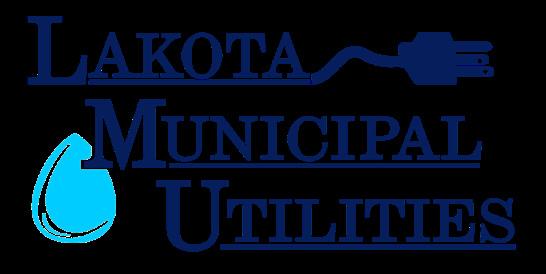

As a public power community, LMU serves the electric needs of residents and businesses in Lakota. The utility prides itself on providing reliable electric service, affordable rates, local control and exceptional customer service. LMU also offers water and wastewater services to homes and businesses in the community.
LMU is one of approximately 2,000 community-owned electric utilities in the U.S. that serve more than 49 million Americans. From small towns to large cities, one in seven customers across the nation are served by public power.
650
571 LAKOTA POPULATION
$
13 .1 M
1
In a community served by a municipally owned utility, customers are the owners who have local representation. LMU is governed by a mayor and six city council members who serve four-year terms.
LMU’s power supply is provided by Western Area Power Administration (WAPA) and Missouri River Energy Services (MRES). LMU has a power supply contract with WAPA that extends until the end of 2050. The utility also has a long-term, supplemental power supply contract with MRES that is secured through 2056.
WAPA supplied LMU with about 74% of the utility’s energy requirements in 2023.

The electricity LMU purchases from WAPA is almost exclusively clean, renewable hydropower from dams on the Missouri River. The supplemental power supplied by MRES helps reduce risk through diversity in fuel sources and geographic location and focuses on environmental stewardship through the development of renewable and carbon-free resources.


The diverse mix of power supply resources results in reliable, affordable and environmentally friendly electric service for Lakota’s citizens and businesses.
89%

*Three-year average of 2020, 2021 and 2022.
LMU actively participates in the BES energy-efficiency program offered by MRES, which offers cash rebates for residential and commercial customers when they purchase new, energy-efficient equipment. When this equipment is installed, LMU reduces the wholesale demand and energy purchases from MRES, saving customers money.
From 2009 through 2023, LMU saved an estimated 1,255,725 kilowatt-hours (kWh), which includes 6% distribution line losses, and approximately 212 kilowatts (kW) in cumulative on-peak demand savings.
Based on the Environmental Protection Agency’s greenhouse gas calculator, this is the equivalent of the energy used in about 114 homes per year.

LMU CUSTOMERS RECEIVED NEARLY
$ 73,000 THROUGH REBATES OFFERED BY BES.
*2009 -2023
LMU and its customers enjoy lower wholesale power supply and transmission costs compared to the average cost per kWh of other regional wholesale suppliers.
As shown in the graph below, LMU’s blended power supply and transmission cost in 2023 was 4.1 cents per kWh (blue bar), the lowest on the graph. Meanwhile, the average wholesale composite rate of 20 area power suppliers was 7.5 cents per kWh (red bar), about 83% higher than LMU’s cost, or a difference of 3.4 cents per kWh.
LMU purchased 14,333,317 kWh in 2023 from WAPA and MRES. The utility saved $487,333 in wholesale power costs because of LMU’s WAPA allocation and the supplemental power contract with MRES.
The utility passes these wholesale savings on to residential and business customers because it is a not-for-profit utility.
In 2020, the MRES Board of Directors (Board) approved a one-time refund for 10% of its members’ power supply bills from August 2019 to July 2020. LMU received over $25,000 from the refund. Additionally, MRES secured a settlement from the Federal Energy Regulatory Commission (FERC), which gave LMU approximately $63,000 as part of a transmission refund. The combined refunds of more than $88,000 benefited all customers in the community. Each customer received a one-time bill credit, while remaining funds were used to pay for system and capital improvements that otherwise would have been funded through future rate increases.
An LMU residential customer using 1,000 kWh per month will save an average of nearly $13 monthly on their electric bill. Depending on usage, small businesses can save between $7 and $26 per month.
On average, LMU transferred over 16%, or about $212,000 per year, of its electric operating revenues from 2020 through 2023. The American Public Power Association’s (APPA) national transfer average is about 6%, and the national average for investor-owned utilities is approximately 5% (via franchise fees.) This 12%-13% difference is all money that stays in the Lakota community.
The cost of replacing all or a portion of the transfer from the electric utility to the city would likely result in an increase of other local taxes collected by the city, such as sales and property taxes, or an increase in service fees.
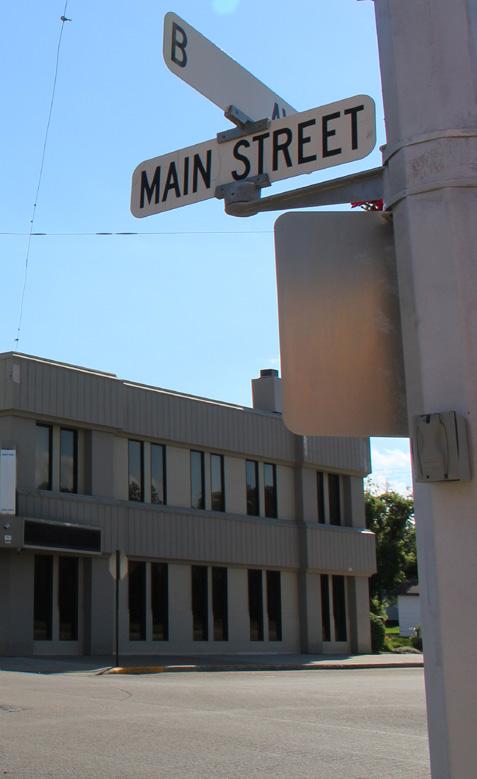
$
212,000

LMU can access tax-exempt financing, which typically carries reduced interest rates. This results in lower overall borrowing costs, depending on the credit quality of the borrowing utility. Tax-exempt bonds issued by utilities usually finance large infrastructure or generation projects that increase reliability and safety, among other benefits.

Public power utilities maintain a high level of reliability in the industry, and their customers benefit from fewer power outages compared to customers of privately owned electric utilities.
Public power utilities maintain a high level of reliability in the industry, and their customers benefit from less time in the dark compared to customers of privately-owned electric utilities.
A utility customer’s number one priority is reliability, and LMU has a strong record of maintaining an electric system that operates continuously and efficiently.

LMU CUSTOMERS CAN EXPECT RELIABILITY IS THE NUMBER ONE PRIORITY
Local crews mean faster response time and shorter outages. These crews are committed to high safety standards for themselves and their family, friends and neighbors. Over the years, LMU has reinvested in infrastructure improvements to ensure the reliability expected by its customers.
LOCAL CREWS MEAN FASTER RESPONSE TIMES AND SHORTER OUTAGES
INFRASTRUCTURE IMPROVEMENTS ENSURE RELIABILITY
LMU crews maintain the utility’s distribution system to improve efficiency, enhance safety and increase the lifespan of LMU’s equipment. Some of the annual maintenance tasks are:
u Trimming trees and other vegetation under power lines
u Inspecting circuits and transmission lines
u Installing or converting to underground wires/cables
LMU invites new customers to the community and helps existing customers grow or expand their businesses. The utility works hard to contribute to the vital community amenities and services that make Lakota a great place to live or own a business.
For example, the salaries of LMU employees support the local economy by driving local spending and investment. On average, LMU’s electric utility salaries total about $172,000 per year, and the electric utility spends, on average, $126,000 on local supplies every year. These salaries and purchases from local businesses are recirculated multiple times throughout the community.
LMU plays a vital role in Lakota’s economy by attracting, retaining and supporting businesses. Here are some examples of LMU’s community and economic development efforts:
u Created a local sales tax initiative to support Main Street redevelopment through the Storefront Improvement grant. More than $24,000 has been granted to businesses that have improved their storefronts since the program began in 2015;
In the unlikely event of an outage, LMU is prepared to communicate with its customers through:

u Participates in the Bank of North Dakota’s Flex PACE Program, which buys down interest rates for Lakota businesses. Almost $10,500 has been contributed to this ongoing program;
u Invested in the Lakota Childcare Center. In partnership with other community businesses and residents, Lakota and LMU helped purchase and renovate a building in 2015 for use by a local nonprofit. The city helps with ongoing maintenance costs by covering building insurance and large maintenance issues;
u Provided $50,000 toward the Lakota Library and Museum expansion project;
u Funded community center improvements of over $31,000 in 2022;
u Contributed over $22,000 to the street fund to purchase equipment in 2022;
u Ongoing street lighting donation to Lakota with an annual value of over $27,000;
u Contributed $110,000 for swimming and wading pool renovations to enhance community wellness and recreational opportunities;
u Purchased shopping carts with sales tax funding to help Cenex fill a grocery need when the Lakota grocery store closed in 2019. The city contributed funds to this C-Store to bring in produce, meat and other essentials for residents;
u Gave Lakota Bucks for property beautification. Lakota residents who put new siding or paint on the exterior of their home get $100 to spend locally as an incentive. To date, $2,500 Lakota Bucks have been given.


As a public power electric utility, LMU is about serving the local community. The city council governs the utility. When citizens have concerns, they can call council members or LMU staff who live in the community and have Lakota’s best interests at heart, and not a company with headquarters located far away. Citizens are welcome and encouraged to attend public meetings.
LMU’s policymakers and staff have the opportunity to represent Lakota at the national level by attending APPA’s annual Legislative Rally in Washington, D.C.
In addition, LMU offers local customer service support with a payment office located right in Lakota. LMU employs local people who know and listen to the customers. They take pride in their work and know the customers as family, friends and neighbors.
LMU’s employees provide many hours of service to the city, other utility departments and local organizations and events. Here are just a couple of ways LMU helps the community:
u Supports the Lakota Turkey BBQ in June each year with donated staff time to run the event (about a $5,000 value)
u Provides educational energy kits, called the Smart Energy Squad, to fifth-grade students and teachers, reaching 145 students/teachers over the last 10 years
u Donates staff time for events at the community club, churches, fire and Sheriff’s department

LMU’s headquarters and operations are located right in the community. The staff are familiar with the utility service territory and can identify and quickly correct any problems. Crews can get to the outage site faster because they do not have to drive long distances to start restoring power.
More than 1,100 utilities, including LMU, are linked through a national mutual aid agreement. Mutual aid means utilities help each other in the event of a major storm or disaster. Knowing that LMU has access to aid in the event of a major incident is one more benefit to the Lakota community.
Along with 60 other public power communities, LMU can access the resources and savings of MRES, including a more diverse power supply, transmission, and many other services by being a member of the organization. Shared costs and mutual support make the effort more manageable and cost-effective for all MRES members. Some other benefits include:
u Economies of scale
u Aligned values and viewpoints to meet future challenges together
u Mutually beneficial services and opt-in services
u Reduced risks
Key services offered by MRES include:
u Power supply and transmission planning
u State and federal legislative advocacy and regulatory compliance
u Communications and marketing
u Energy efficiency and electrification programs
u Load control and metering services
u Rate studies
u Scholarships and school education programs
u Community event sponsorships
u Cybersecurity assessments
u Education and training
u Proactive maintenance services
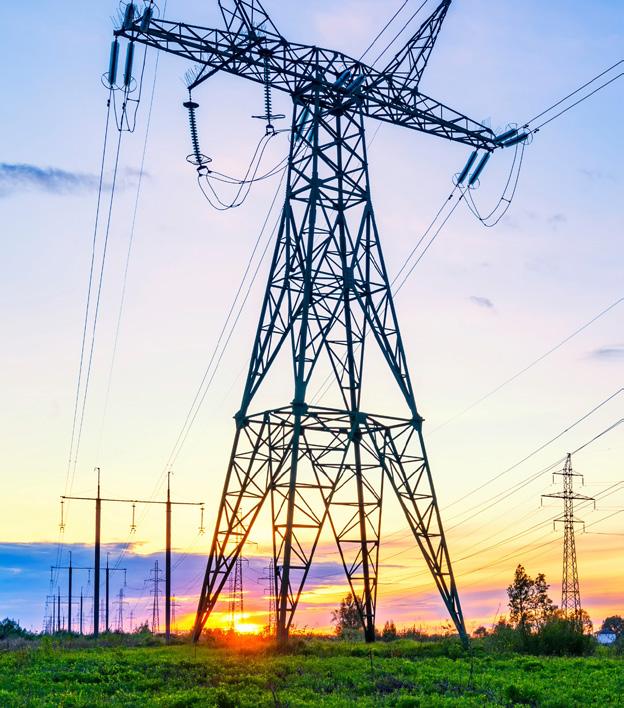
Cavalier
Lakota Riverdale Hillsboro Nort hwood
Valley Cit y
MINNESOTA
Adrian Barnesville
Breckenridge
Elbow Lake
Hutchinson
Lake Park
Luverne
Marshall
Moorhead Sauk Centre Staples
Westbrook

Alexandria Benson Detroit Lake
u Strategic planning and leadership development s
Henning
Jackson Lakefield
Madison
Melrose
Ort onville
St. James Wadena
Willmar Wort hington
Beresford
Brookings Faith
Fort Pierre
Pierre Watert own
Big Stone City
Burke
Flandreau
Pickstown
Vermillion Winner IOWA
Atlantic
Hart ley
Kimballton
Manilla
Paullina
Primghar
Rock Rapids
Shelby
Woodbine
This report reinforces the dependability of the local electric system, while outlining additional financial and community benefits gained by the community. As a part of a public power community, LMU customers can count on:
u Reliable electric service
u A diverse power supply portfolio
u Affordable prices
u Governance that includes appointed local citizens, who are also customers of LMU
u Local decisions that reflect the community’s values
u Financial contributions and in-kind benefits that support the city and its residents
u Economic development support
u Quick emergency response because crews live in the Lakota community
u Municipal utilities working with local groups for shared success
LMU adds value to the community in ways that can be measured and experienced, and contributes to the health and vitality of Lakota. 108



